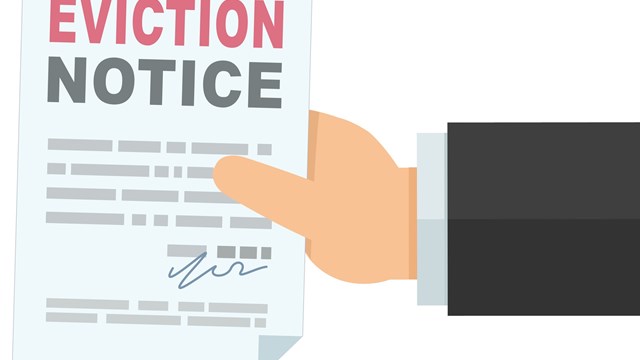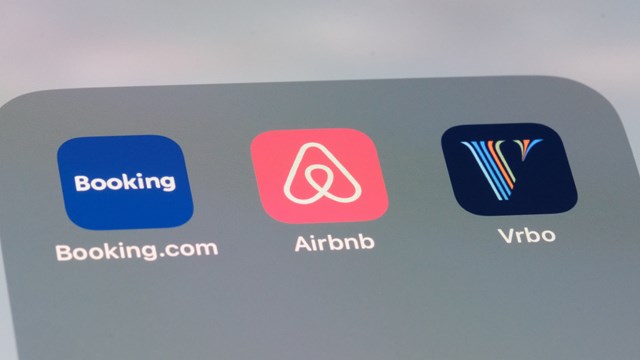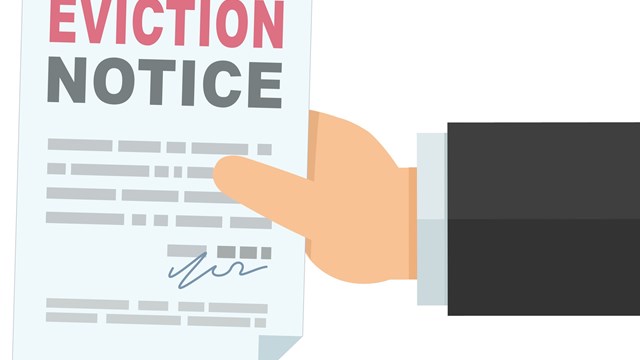
In the world of owned residential communities like co-ops, condominiums, and HOAs, the issue of leased or sublet units is often the elephant in the corner of the communal room. Most owners choose to buy their units because they want a stable environment that promotes pride of ownership and long-term commitment on the part of their fellow residents. Some buy units as an income-producing investment. Others find themselves in circumstances —a job change, divorce, or other major life event—that leads them to place a tenant in their former space. Absentee ownership is a reality in many communities, and while it’s more common in condominiums than in co-ops, it’s an issue that boards of all types and stripes must contend with for the good of their communities.
Renters vs. Owners
While of course most renters treat their units and shared common areas with utmost respect and care, it’s a residential truism that owners generally have a deeper commitment to the community and the physical care of a building or association than renters do. “We have observed over the years,” says Bruno Bartoli, Director of Management Services for Evergreen Management Group in Bedford, New Hampshire, “that renters generally do not take the same pride of ownership that owners do; nor do they worry as much about following association rules. To be fair, we also see that some owners don’t share the association rules with renters, so they move in without knowing what is and is not allowed.”
The underlying issue concerning tenants and their behavior is the nature of their relationship to the community. “While unit owners are bound to observe the rules and regulations of the condominium,” says Mark Hakim, an attorney with New York-based law firm Schwartz Sladkus Reich Greenberg & Atlas, “tenants of unit owners do not have the same responsibilities and liability to the condominium generally, as they do not have direct privity with the condominium. Remember, their lease is with a unit owner - not the board or the community, even when their leases incorporate the house rules by reference. That is across the board, whether related to objectionable conduct issues or financial matters.”
According to Filippo Incorvaia, Principal of FI Real Estate in Miami, some of the more common issues that arise with rental tenants in condo communities include “tenants disobeying the previously accepted terms within the lease agreement by introducing pets after moving into the condo without consulting with landlord or HOA, adding a roommate to live with them in the space without previous authorization of the landlord or notifying HOA about the additional resident.”
And when it comes to physical maintenance issues, Incorvaia notes that “tenants often don’t change air filters regularly; then both tenants and landlord suffer the consequences of a malfunctioning A/C unit, which can create unexpected expenses for the landlord and less favorable living conditions for the tenants —especially in South Florida. And during the move-out walkthrough, tenants often leave the unit in poor condition, so security deposit disputes are also very common.
Essentially, tenants renting units in condo associations just don’t have the same stake in its physical upkeep and maintenance; and not only may they not have the same interest as owners in upholding house rules, they may not know the rules.
When a Tenant is a Problem
While most renters will live alongside owners—sometimes for decades—with zero issues, sometimes that disparity of concern does become apparent. If a tenant in a leased unit becomes a problem for a condominium board, what can the board and management do? What options they have are usually delineated in the governing documents, and generally limited to managing the problem through the owner/landlord.
“The bylaws and house rules will likely (and hopefully) have provisions prohibiting the specific issue at hand,” says Hakim, “in which case the board will demand the unit owner cause the tenant to cease or correct the behavior. Failure to do that may force the board to commence an action - at the unit owner’s cost and expense, if the bylaws permit. Older bylaws do not always contain the specific reimbursement provisions, but it is quite important to check. In fact, we recommend all boards review their bylaws and modernize them to improve their available remedies in situations with tenants.”
From a practical day-to-day perspective, Bartolo explains how management handles these problems: “Tenants are the sole responsibility of the owner,” he says. “The owner is one hundred percent responsible for any action of their tenant, right or wrong. We follow the specific association’s rules to properly discipline any wrong actions on the part of the tenant. We do not communicate with the tenant, rather we communicate with the owner, as the contractual relationship is between the association and unit owner. At the end of the day, the owner will receive an initial violation warning letter with fines to follow, should the tenant not correct the action in accordance with the rules and fining process.”
Board Input
In co-op corporations, the board generally has the right to approve or reject both prospective purchasers and tenants alike. “That is not generally the case in condominiums,” says Hakim, “where the right of first refusal—that is, the right for the board to lease the unit on the same terms as offered to the tenant—exists, and is often the only remedy available. Certainly, managing agents and condominium boards require and request information on a prospective tenant, including background checks, but that information is used to aid in the decision to issue the waiver of the right of first refusal, or exercise such right.”
Bartoli points out that in New Hampshire, “Boards have little say regarding the approval or rejection of prospective tenants, and the majority of associations in New Hampshire stay away from the process. For those associations that want to be more involved with the process, I would recommend first speaking with the association’s attorney. They are able to offer guidance, provide legal support, and educate the board as to what extent they can be involved. Association documents often vary from community to community, and it’s important to have an attorney draft a rule giving the board more control in the tenant leasing process. This can help an association avoid future liability issues.”
Further, says Bartoli, “The board does not have authority to [directly] evict a tenant. If the tenant fails to follow the rules, the only instrument an association has is the ability to continue fining the owner until the situation reaches a point where it becomes too expensive for the unit owner to keep that tenant.”
Boards or managers at a condo building may not be able to give an obnoxious tenant the booth personally, but according to Incorvaia, “They can play an important role when dealing with a problematic tenant by serving as witnesses to the tenant’s behaviors during the lease terms. They can provide proof and additional information to the landlord and landlord’s legal counsel or property manager when a dispute arises between the parties.”
Hakim explains the process. “Legal action must be taken against the tenant, and will likely include the unit owner, as the condominium board has privity - a direct legal relationship - with the unit owner. First though, the board must send letters demanding the behavior or actions cease. If that does not resolve the issue, then the board will be forced to commence legal action, and the type of action will depend on the nature of the default. Regrettably, any such action will not be quick, nor inexpensive.”
Removal
A board can demand that the unit owner cause the tenant to cease the offending behavior, but whether the unit owner must terminate the lease and cause the tenant to be removed is and will be determined by the lease and the specific issue. “That said,” says Hakim, “unit owners understand that they ultimately can be liable for the issues caused by their tenant, including damages to the common or other areas of the condominium—but again, that would be determined by the exact wording of the condominium’s governing documents.”
Bartolo points out though that the overall situation can be difficult to maneuver. “A board can strongly suggest that the tenant is not a good fit for the association, but the board has no legal authority to evict the tenant. Should an owner stop paying condo dues, the board will initiate legal action against them - not against the tenant. The owner is liable for any damage in the common areas due to a tenant’s actions or negligence, and can definitely be sued for the behavior of their tenant. As I detailed earlier, the tenant is considered a guest of the owner, and at the end of the day, that owner is solely responsible for their tenant-guests’ actions.”
And, adds Incorvaia, unit owners can be held liable by the association for damages to common areas or other units resulting from their tenant’s actions or negligence. “It’s important to note that some condo buildings request a common area security deposit for every lease agreement, which is refundable and can be covered by the landlord or tenant,” he says.
And in a Co-op…
Co-ops are a very different form of ownership than a condominium. “A shareholder in a co-op is a tenant under a proprietary lease,” explains Hakim. “The co-op corporation is the landlord, unlike a condominium board, which only manages the common elements and building pursuant to the bylaws, thus a co-op’s board has the ability to address non payments, objectionable conduct, and other issues more easily, whether caused by the shareholder or a tenant thereof. For example, most proprietary leases contain language whereby the co-op corporation can ultimately terminate a lease for ‘objectionable conduct’ (which is quite broad) and other defaults under the lease, without in some instances commencing a legal action. Just the mere threat of this often aids a co-op board in its policing of quality of life and other issues.”
While a reality of life in condominium communities, leasing units can become a thorny issue. Many buyers purchase condominiums with the understanding that they can lease out their property at will; indeed, it’s a basic tenet of the condominium concept. At the same time, it’s the responsibility of the board of the association to maintain the highest level of quality of life for all residents. When the tenant of one owner disturbs that quality of life the association must strike a balance between the community’s wellbeing and the owner’s rights.
A J Sidransky is a staff writer/reporter for CooperatorNews, and a published novelist. He can be reached at alan@yrinc.com.









Leave a Comment